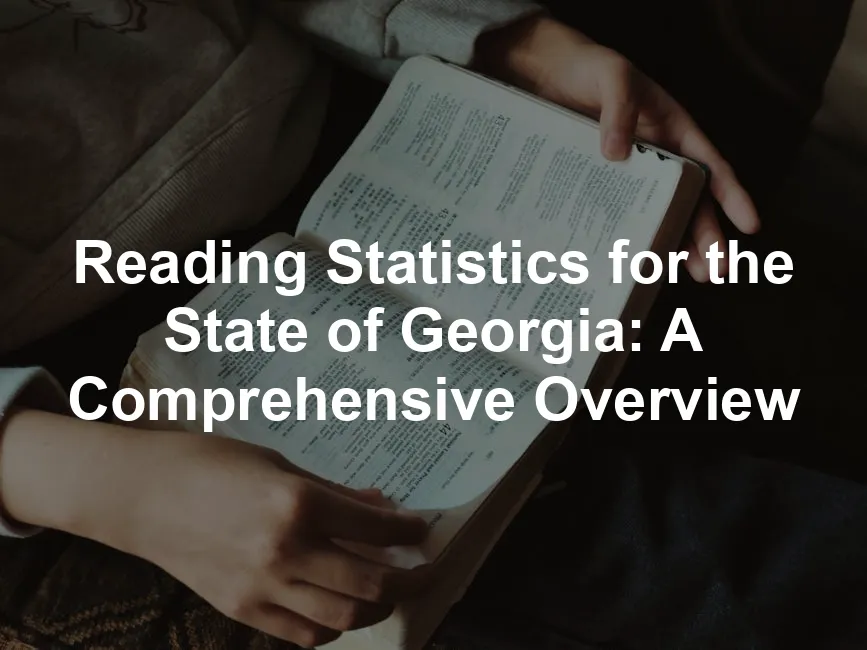Introduction
Literacy is not just a skill; it’s a gateway. In Georgia, reading proficiency influences education, workforce readiness, and socio-economic stability. When children read well, they learn better. When adults read well, they thrive in the workplace. Unfortunately, Georgia faces significant literacy challenges that hinder this potential.
Recent studies reveal some alarming statistics. As of 2022, only 32% of Georgia’s fourth graders demonstrated proficiency in reading. This figure is disheartening and reflects a broader trend. A 2017 Deloitte report highlighted that one in six adults in Georgia has low literacy skills. This issue affects not only individual lives but also the state’s economy, costing Georgia about $1.26 billion annually.
For those looking to dive into compelling narratives that explore themes of resilience and growth, consider picking up “The Book Thief” by Markus Zusak. This novel not only captivates readers but also opens their eyes to the power of words in shaping lives. It’s a beautiful reminder of why literacy matters.
It’s clear that literacy is a pressing issue in Georgia. The current landscape shows a need for immediate attention and action. Understanding these reading statistics is essential to inform policies and educational practices. This article will explore the current state of reading in Georgia, focusing on literacy statistics, adult challenges, and the impact of the pandemic, all while aiming to illuminate the path forward for improvement in literacy outcomes.

The Current State of Reading in Georgia
Overview of Literacy Statistics
Georgia’s literacy statistics tell a story of struggle and opportunity. The National Assessment of Educational Progress (NAEP) provides critical insights into reading proficiency among K-12 students. In 2022, only 32% of fourth graders and 31% of eighth graders achieved proficiency in reading. These numbers reflect an ongoing crisis that requires urgent intervention.
State-specific assessments echo these findings. For instance, more than a third of Georgia’s third graders—34.1%—are reading below grade level, according to the spring 2023 Georgia Milestones tests. This is a stark decline from 42% who scored proficient or higher in 2019. Pandemic-related learning loss has exacerbated these challenges, highlighting the need for targeted solutions.
Yet, it’s not just children who struggle. Adult literacy is equally concerning. A staggering 1 in 6 adults in Georgia grapples with low literacy skills. The implications of this are dire, leading to reduced workforce readiness and increased poverty rates.
In summary, the statistics reveal a state in need of change. The focus must shift to improving literacy outcomes across all ages, ensuring every Georgian can participate fully in society. And speaking of participation, if you want to encourage young readers, consider using a Reading Log Book for Kids. It’s a fantastic tool for tracking their progress and making reading a fun daily habit!
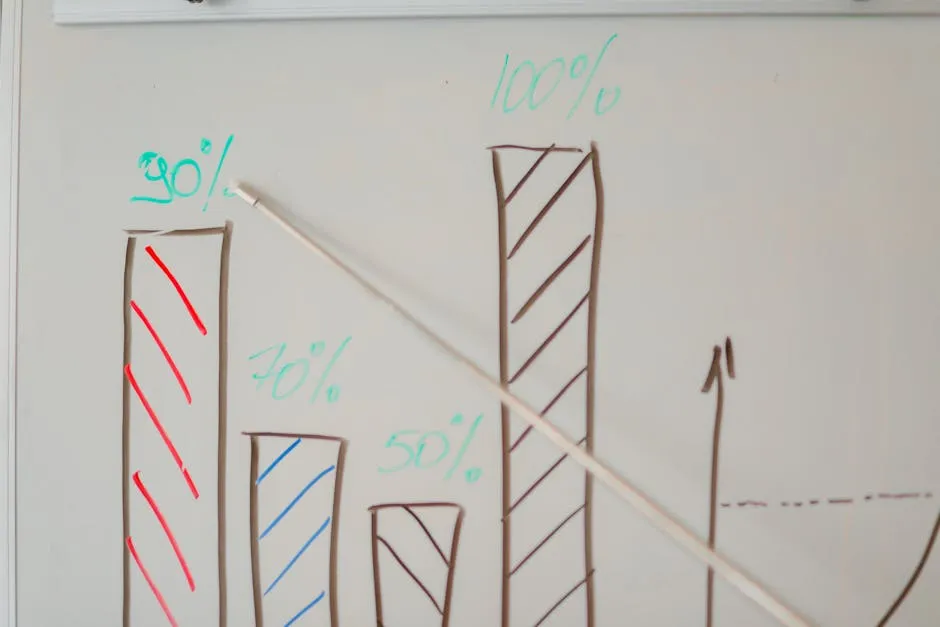
Adult Literacy Challenges
The challenges of adult literacy in Georgia are significant and multifaceted. According to the Deloitte report, around 43% of adults with low literacy levels live in poverty. These adults often find themselves trapped in a cycle of limited job opportunities and financial instability.
Worryingly, low literacy not only impacts individuals but also affects families. Children of low-literate parents are 72% more likely to struggle with reading themselves. This perpetuates a cycle of educational disadvantage. Moreover, the socio-economic implications are profound. For instance, 75% of state prison inmates are classified as low literate, which highlights the direct correlation between literacy and incarceration rates.
The cost to Georgia is staggering—nearly $1.3 billion annually due to lost tax revenue, social services, and incarceration. This economic burden underscores the urgency of addressing adult literacy challenges. Programs aimed at improving adult literacy, such as those offered by the Technical College System of Georgia, play a crucial role in breaking this cycle.
By investing in adult literacy programs, Georgia can improve lives, empower families, and strengthen communities. If you’re looking for a great read on personal growth, check out “Educated: A Memoir” by Tara Westover. It’s a powerful narrative about perseverance and the transformative power of education!

Impact of the Pandemic on Literacy
The COVID-19 pandemic left a mark on learning across the globe, and Georgia was no exception. Students faced unprecedented educational disruptions that led to significant setbacks. A study revealed that students in Georgia experienced a loss of over four months of math learning and almost two months of reading learning between 2019 and 2022.
This learning loss is particularly troubling for K-8 students, who rely heavily on foundational literacy skills. The Georgia Milestones test from spring 2023 showed that 34.1% of third graders were reading below grade level. This decline is stark when compared to 42% who were proficient or above in 2019. It’s as if the pandemic hit the pause button on reading skills, leaving many students scrambling to catch up.
The vulnerability of younger students became apparent during this time. Research indicates that children who struggle with reading early on often fall further behind as they progress through school. For instance, approximately 30.5% of students in grades 3 through 8 were classified as beginning learners post-pandemic, compared to 24% before the pandemic. This means that more students are entering high-stakes assessments without the necessary skills to succeed.
The long-term implications of these setbacks are concerning. Experts warn that the pandemic could impact the lifetime earnings of students, potentially resulting in a decrease of $19,400 per student. Lost instructional time can lead to lower graduation rates, reduced workforce readiness, and increased socio-economic disparities.
In essence, the pandemic has exacerbated existing literacy challenges in Georgia. Addressing this learning loss will require concerted efforts from educators, policymakers, and communities to ensure that students can recover and thrive in their educational journeys. And for those interested in understanding the psychology behind learning, I recommend “The Science of Reading: A Handbook” by Margaret J. Snowling. It’s a great resource to dive deeper into effective literacy strategies!

Legislative Efforts to Improve Literacy
Recent Literacy Laws and Initiatives
Georgia is ramping up its commitment to improving literacy through significant legislative measures. One of the most impactful recent laws is the Georgia Early Literacy Act, which mandates that schools screen K-3 students for reading deficiencies. This proactive approach aims to identify students at risk for reading challenges early on, ensuring they receive necessary interventions.
Complementing this initiative is the establishment of the Georgia Council on Literacy. This 30-member council, composed of educators, policymakers, and literacy advocates, convenes to develop strategies that address literacy issues across the state. Their focus includes comprehensive reviews of existing programs and the implementation of evidence-based practices in literacy instruction.
The objectives are clear: improve reading proficiency, close the literacy gap, and foster a culture of reading across Georgia. These measures aim not only to enhance student outcomes but also to create a sustainable framework for ongoing literacy development. If you’re looking for a classic that embodies the American dream and the importance of literacy, consider reading “The Great Gatsby” by F. Scott Fitzgerald. It’s a timeless read that explores the complexities of society and ambition!
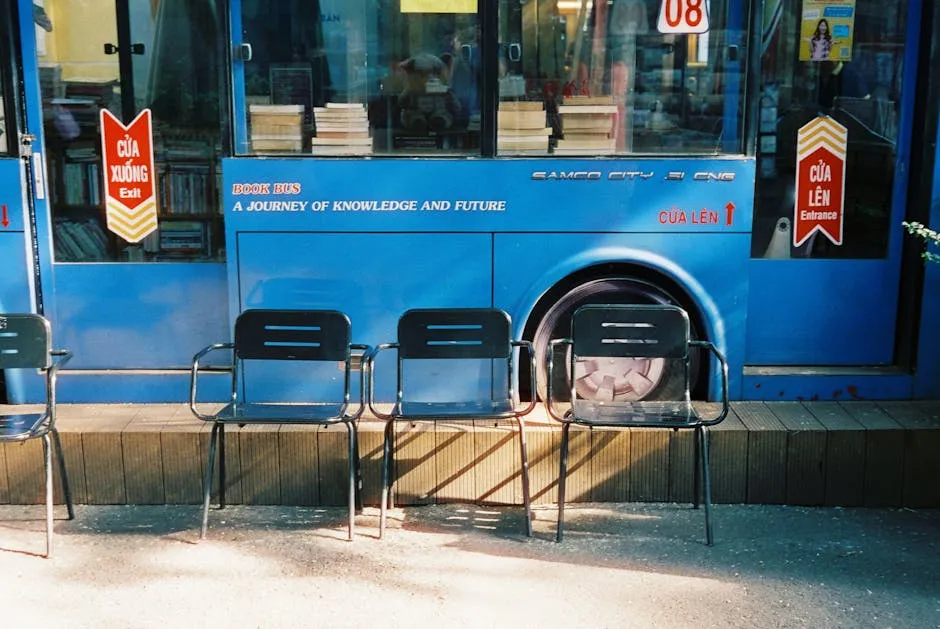
Comparison with Successful Programs in Other States
When looking at Georgia’s efforts, it’s worth comparing them to successful literacy programs in states like Mississippi. Just a decade ago, Mississippi faced a dire literacy crisis, ranking near the bottom in reading proficiency. However, through focused interventions, they turned their literacy rates around.
Mississippi’s success can be attributed to several key strategies: extensive teacher training, early identification of reading difficulties, and a commitment to the “science of reading.” The state invested heavily in training teachers on evidence-based practices, which significantly improved student outcomes. For instance, Mississippi saw its fourth-grade reading proficiency soar from 49th in the nation to 21st by 2022.
Georgia can learn from this success. By prioritizing teacher training and establishing systematic screening practices, Georgia can replicate Mississippi’s gains. Early intervention is crucial. The sooner students receive support, the better their chances of achieving literacy proficiency. If you’re interested in understanding how habits shape our behavior, check out “Atomic Habits” by James Clear. It offers insights into building effective habits, which can be beneficial for both educators and learners!

Tools and Resources for Enhancing Literacy
State-Sponsored Data Tools
In the quest to improve literacy in Georgia, state-sponsored data tools play a crucial role. The Georgia Student Achievement Dashboard is a key resource that provides insights into how elementary school children perform in English language arts and math. Educators, parents, and policymakers can access detailed data about student performance, allowing them to make informed decisions. This dashboard shows percentage scores for third and fifth graders, and it can be filtered by various factors like disability status and economic background. With data available from 2015 onwards, it offers a comprehensive view of trends over time.
Complementing this is the Reading Readiness Dashboard, launched by the Georgia Department of Education. This tool is designed to improve transparency and accountability around literacy outcomes. It provides easy access to literacy data at the state, district, and school levels. Users can see the percentage of students reading below, at, or above grade level. The dashboard allows comparisons across different demographics, ensuring that all stakeholders can understand where improvements are needed.
These tools aid in tracking literacy progress effectively, enabling targeted interventions. Educators can identify areas where students are struggling, allowing for timely support. Parents can monitor their child’s reading development, fostering a collaborative approach to literacy. In essence, these dashboards serve as vital resources for those invested in the educational outcomes of Georgia’s students. And while we’re talking about tracking progress, consider using Reading Comprehension Flash Cards. They’re perfect for reinforcing key concepts and making learning interactive!
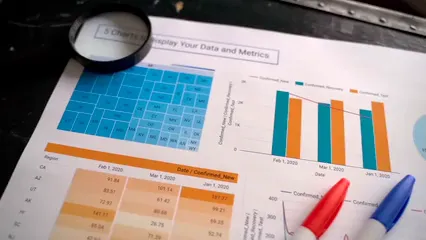
Community and Educational Programs
Community initiatives also play a significant role in enhancing literacy across Georgia. Various educational programs and organizations are working diligently to improve literacy rates. Technical colleges across the state provide resources and training for adult learners. They offer programs aimed at developing reading and writing skills, which are essential for workforce readiness. These institutions are pivotal in helping adults gain the skills needed to advance in their careers.
Moreover, organizations like Literacy Action offer programs that provide free or low-cost literacy classes. These community-driven initiatives ensure that individuals can access the resources they need to improve their reading skills. They not only focus on adults but also engage with families to create a culture of reading at home. If you want to build a strong foundation for young readers, check out LeapFrog LeapReader System. It’s an engaging way for kids to learn to read!
Public-private partnerships have emerged as a powerful mechanism to enhance literacy resources. Collaborations between schools, community organizations, and businesses help leverage funding and resources effectively. For example, local businesses can sponsor literacy programs, provide volunteer support, or offer incentives for employees to participate in adult education programs. Such partnerships foster a community-wide commitment to improving literacy, creating a supportive environment where everyone can thrive.
Engaging families in these initiatives is crucial. Programs that encourage parental involvement in children’s reading development have shown to be effective. By providing parents with tools and strategies to support literacy at home, communities can create a robust support system for young readers. And speaking of support, don’t forget about Children’s Bookshelf: 50 Books for Kids. It’s a fantastic collection to ignite a love for reading in young ones!
In conclusion, Georgia boasts a wealth of tools and community programs dedicated to enhancing literacy. These initiatives not only address the immediate needs of learners but also build a foundation for long-term success. By working together, educators, parents, and community members can create a brighter future for Georgia’s literacy landscape.
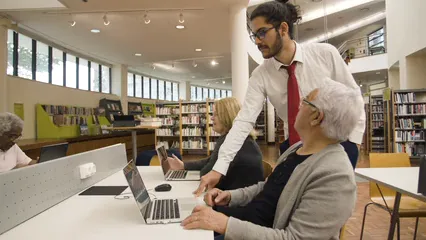
Future Recommendations for Literacy Improvement
Strategic Initiatives for the Next Decade
As Georgia looks to the future, strategic initiatives are essential to improve literacy outcomes. First, continued investment in teacher training is paramount. Effective literacy instruction requires educators to be well-equipped with evidence-based practices. Programs that focus on the “science of reading” should be expanded, ensuring that all teachers receive comprehensive training before entering the classroom. This approach has proven successful in states like Mississippi, which saw significant gains in literacy through similar investments.
Moreover, enhancing early childhood education is vital. Research shows that the foundation for literacy is established in the early years of life. By supporting programs that foster early literacy skills, Georgia can set children on a path to success before they even enter formal schooling. Investing in quality pre-K programs can yield lasting benefits, reducing the likelihood of future literacy challenges. For a fun way to introduce kids to reading, you might want to consider “The Little Engine That Could” by Watty Piper. It’s a classic tale that inspires determination!
Community engagement must also be prioritized. Collaborative efforts that involve local organizations, families, and educators can create a comprehensive support network. Engaging parents in their children’s literacy development is crucial. Workshops that equip families with strategies to promote reading at home can bridge the gap between school and home learning environments.

Addressing Socio-Economic Disparities
To ensure all students benefit equally, addressing socio-economic disparities is critical. Literacy interventions must be targeted toward underrepresented communities, particularly in low-income areas. Initiatives that provide resources and support to these communities can help break the cycle of low literacy. This includes offering free literacy classes, providing access to books, and ensuring that families are aware of available resources.
Additionally, public-private partnerships can be leveraged to enhance resources in struggling communities. Local businesses can sponsor literacy programs or provide mentorship opportunities for students. This collaborative approach can help create a more equitable landscape for literacy in Georgia. And if you’re looking for a thought-provoking read on social issues, “I Am Malala” by Malala Yousafzai is a powerful testament to the importance of education!
Ultimately, the path to improved literacy in Georgia lies in strategic initiatives that prioritize teacher training, early education, community engagement, and addressing disparities. By focusing on these areas, Georgia can pave the way for a literate future, ensuring that every child has the opportunity to thrive.

Addressing Socio-Economic Disparities
Literacy disparities in Georgia are glaring, especially among low-income communities. To tackle these issues, we must implement targeted strategies that focus on accessibility and support.
First, establishing community literacy centers can provide a safe space for learning. These centers should offer free classes, tutoring, and resources for families. By engaging local volunteers and educators, we can create a supportive environment that encourages literacy development.
Second, collaborating with schools to provide after-school programs is vital. These programs can focus on reading comprehension and fluency, tailored to students’ individual needs. By incorporating fun activities like reading clubs or storytelling sessions, we can make learning engaging.
Additionally, outreach programs must be developed to connect with underrepresented communities. Providing information about available resources and literacy programs will ensure that families are aware of the support they can access. We should partner with local organizations to enhance these outreach efforts.
Moreover, investing in parental involvement is crucial. Workshops that educate parents on how to foster reading habits at home can lead to long-term benefits. Equipping parents with tools and strategies empowers them to support their children’s literacy journeys. For some creative ways to engage kids, consider an Art Supplies Set for Kids. It’s a great way to spark creativity and make learning fun!
Finally, state funding should be directed toward programs specifically aimed at low-income areas. Allocating resources to these communities can help bridge the literacy gap. By focusing on socio-economic disparities, we can create a more equitable literacy landscape in Georgia.

Conclusion
Understanding and addressing literacy challenges in Georgia is crucial for the state’s future. The statistics illustrate a pressing need for intervention. Only 32% of fourth graders read proficiently, and adult literacy rates remain alarmingly low. These figures highlight a cycle of disadvantage that must be broken.
We’ve explored various facets of literacy in Georgia, including current statistics, adult literacy challenges, and the impact of the pandemic. Legislative efforts like the Georgia Early Literacy Act and the establishment of the Georgia Council on Literacy are steps in the right direction. These initiatives aim to improve literacy rates and focus on early intervention.
However, more must be done. Engaging local communities and fostering partnerships can create a robust support system. Encouraging participation in literacy programs can lead to significant improvements. And for a thought-provoking read on personal growth, check out “Daring Greatly” by Brené Brown. It’s an inspiring read that encourages vulnerability and courage!
FAQs
What is the current literacy rate in Georgia?
Georgia’s literacy rate stands at 76.4%, placing it 42nd in the nation. Alarmingly, one in six adults struggles with low literacy skills, according to a 2017 Deloitte report. This issue costs the state about $1.26 billion annually, with a significant portion spent on incarceration. With only 32% of fourth graders reading proficiently, it’s clear that Georgia has a literacy crisis that needs urgent attention.
How has the pandemic affected literacy rates among Georgia students?
The COVID-19 pandemic significantly impacted literacy rates in Georgia. From 2019 to 2022, students lost nearly two months of reading progress. For example, in 2023, 34.1% of third graders were reading below grade level, a concerning drop from 42% in 2019. As many students face a learning gap, the state is striving to address these challenges through new initiatives and targeted interventions.
What resources are available for adults seeking to improve their literacy skills?
Several organizations and programs are dedicated to improving adult literacy in Georgia. The Technical College System of Georgia offers free English Learner and High School Equivalency pathways. Literacy Action provides classes at little to no cost. Additionally, local libraries often host free reading programs. These resources aim to empower adults through education and skill-building, ultimately enhancing their quality of life.
How can parents support their children’s reading development?
Parents can play a vital role in their children’s literacy development. Here are some practical tips: 1. Read Daily: Set aside time each day for reading together. Make it a fun, engaging activity. 2. Encourage Exploration: Provide access to a variety of books and reading materials. Let children choose what interests them. 3. Ask Questions: Discuss stories and ask open-ended questions to develop comprehension skills. 4. Create a Reading Space: Designate a cozy area in the home for reading. A comfortable environment fosters a love for books. 5. Model Reading: Show your own love for reading. Children often mimic their parents’ habits, so let them see you enjoy books too.
What are some successful literacy programs in other states that Georgia can emulate?
Georgia can learn from Mississippi’s successful literacy initiatives. In 2013, Mississippi faced a literacy crisis, ranking near the bottom in proficiency. Through targeted teacher training and early intervention programs, it improved its fourth-grade reading rates dramatically. By adopting similar strategies, including the “science of reading” approach and systematic screening, Georgia can enhance its literacy efforts and achieve better outcomes for its students.
Please let us know what you think about our content by leaving a comment down below!
Thank you for reading till here 🙂
All images from Pexels

